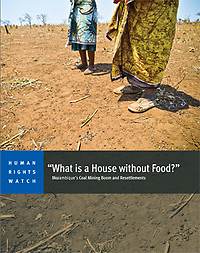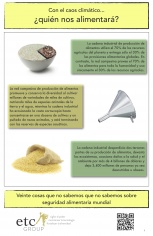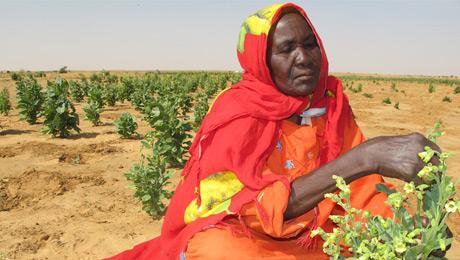Human Rights Watch report on Mozambique
Please find links below to a recent Human Rights Watch report and video on the human rights impacts of coal mining in Mozambique. Our report shows that almost 60% of Tete province, site of large coal reserves, has been allocated for approved or proposed mining licenses. The report examines how serious shortcomings in government policy and mining companies’ (Vale, Riversdale, Rio Tinto) implementation uprooted largely self-sufficient farming communities and resettled them to arid land far from rivers and markets.
Happy to be in touch to provide any additional information.










